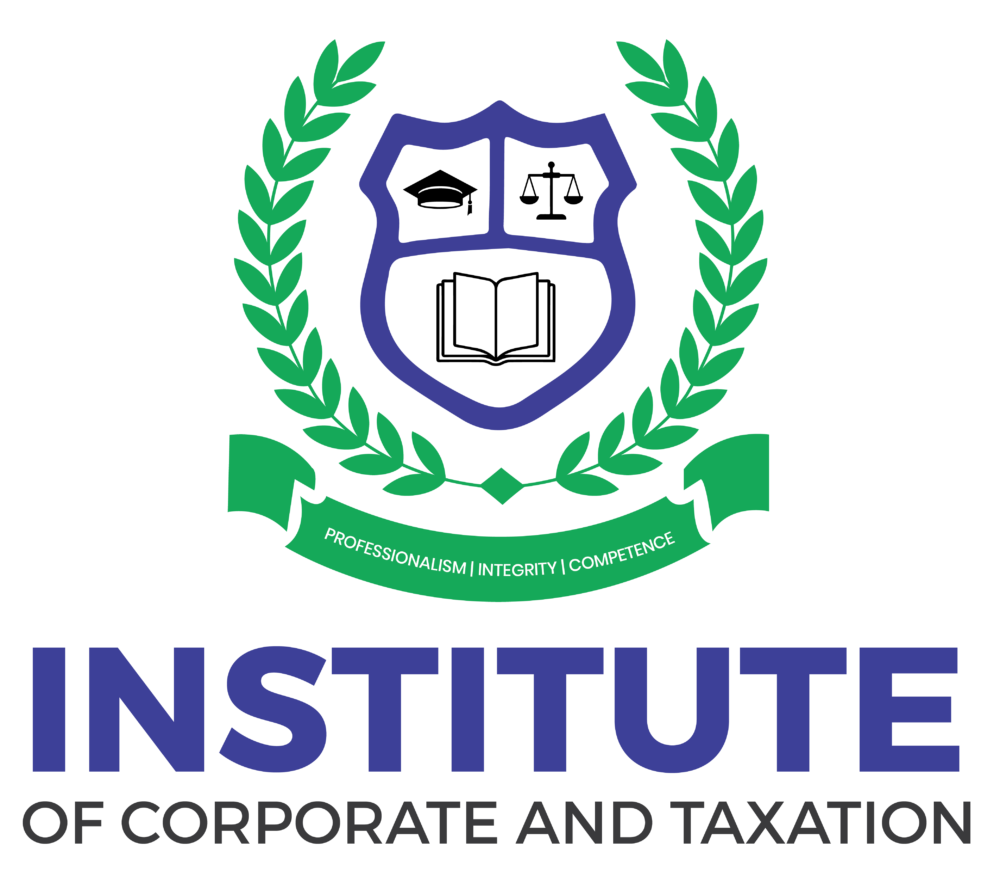
How Corporate Law & Taxation Work Together
How Corporate Law & Taxation Work Together (2025 Guide for Business Owners and Tax Professionals)
Introduction: Why Corporate Law and Taxation Are Interconnected
If you’re running a business in Pakistan or working as a tax professional, you’ve probably noticed something important: corporate law and taxation aren’t separate worlds—they’re deeply connected. Every decision you make about your company’s structure, governance, or operations has direct tax implications. Similarly, tax planning strategies must align with corporate legal requirements to remain compliant and effective.
Think of it this way: corporate law defines how your company exists and operates, while taxation determines how it contributes to government revenue. Understanding both domains isn’t just useful—it’s essential for making smart business decisions, avoiding costly penalties, and maximizing financial outcomes. Whether you’re an accountant, lawyer, or entrepreneur, this guide will help you navigate the relationship between corporate law and taxation in Pakistan’s business landscape.
Understanding the Basics of Corporate Law in Pakistan
Corporate law provides the legal framework that governs how businesses are formed, managed, and dissolved. In Pakistan, the primary legislation is the Companies Act 2017, which is regulated by the Securities and Exchange Commission of Pakistan (SECP).
What Does Corporate Law Cover?
Corporate law addresses several key areas:
Company Formation and Registration: This includes choosing the right business structure—whether you’re setting up a private limited company, public limited company, or single-member company. The incorporation process involves registering with SECP, obtaining necessary licenses, and ensuring compliance with legal documentation requirements.
Corporate Governance: These are the rules and practices that determine how companies are directed and controlled. This includes board responsibilities, shareholder rights, director duties, and transparency requirements. Good corporate governance isn’t just about following rules—it protects stakeholders and builds trust.
Mergers and Acquisitions: When companies combine or change ownership, corporate law provides the legal structure for these transactions. The process involves due diligence, valuation, shareholder approvals, and regulatory compliance.
Compliance and Reporting: Companies must maintain proper records, file annual returns, hold regular meetings, and submit financial statements to SECP. These requirements ensure transparency and accountability in the corporate sector.
The legal structure you choose for your business isn’t just a formality—it determines your liability exposure, management flexibility, and yes, your tax obligations.
How Taxation Impacts Business Legal Structures
The connection between corporate law and taxation becomes crystal clear when you look at how different business structures are taxed. In Pakistan, the Federal Board of Revenue (FBR) administers corporate taxation under the Income Tax Ordinance 2001.
Tax Implications of Corporate Structure
Private Limited Companies: These companies are taxed as separate legal entities. For the tax year 2025, the corporate tax rate in Pakistan stands at 29% for most companies. However, small companies with turnover up to Rs. 250 million may benefit from reduced rates. The advantage? Limited liability protection combined with potential tax planning opportunities through strategic expense management and deductions.
Public Limited Companies: Listed companies often receive favorable tax treatment to encourage public participation in capital markets. They’re subject to the standard corporate tax rate but may qualify for various incentives depending on their sector and compliance status.
Sole Proprietorships and Partnerships: These aren’t separate legal entities, meaning profits are taxed at individual income tax rates, which can be higher or lower depending on income levels. While they offer simplicity, they lack the legal protections and tax planning flexibility that incorporated structures provide.
Why Structure Matters for Tax Planning
Your company structure affects:
- Tax Rates: Different structures face different rates and calculation methods.
- Deductibility: What expenses you can legally deduct varies by structure.
- Double Taxation: Corporations may face taxation at both company and shareholder levels when distributing dividends.
- Loss Carryforward: The ability to offset future profits with current losses depends on your legal structure.
- Withholding Tax Obligations: Different structures have different withholding tax responsibilities for payments to vendors, contractors, and employees.
This is why tax experts often collaborate with corporate lawyers during business formation—getting the structure right from day one can save substantial money and headaches down the road.
Corporate Tax Compliance and SECP Regulations
Compliance sits at the intersection of corporate law and taxation. Companies must satisfy both SECP requirements and FBR tax regulations simultaneously.
SECP Compliance Requirements
Under the Companies Act 2017, businesses must:
- File annual returns within the prescribed timeline
- Maintain statutory registers and records
- Conduct annual audits by qualified chartered accountants
- Hold annual general meetings
- Update any changes in directors, shareholders, or registered address
- Submit audited financial statements
Failure to comply can result in penalties, director disqualification, or even company dissolution.
FBR Corporate Tax Obligations
From a taxation perspective, registered companies must:
- Obtain a National Tax Number (NTN) upon incorporation
- Register for sales tax if turnover exceeds the threshold
- File monthly withholding tax statements
- Submit annual income tax returns by the due date (typically September 30th for companies)
- Maintain proper books of accounts as per accounting standards
- Pay advance tax in quarterly installments
- Comply with transfer pricing documentation if engaging in related-party transactions
The Integration Challenge
Here’s where things get interesting: your financial statements prepared for SECP compliance form the basis of your tax computations for FBR. However, accounting profit and taxable income aren’t identical. Tax law includes specific adjustments, disallowances, and special provisions that modify your book profit to arrive at taxable income.
For example, depreciation rates under tax law may differ from accounting standards. Certain expenses allowed under corporate accounting might be disallowed for tax purposes. This is where understanding both corporate legal requirements and tax regulations becomes crucial.
Tax Planning Through Corporate Law Strategies
Smart business owners and tax professionals use corporate law mechanisms to achieve legitimate tax optimization. This isn’t about evading taxes—it’s about structuring your affairs within legal boundaries to minimize tax liability.
Legal Tax Planning Strategies
Choosing the Right Business Structure: As discussed earlier, your choice between a sole proprietorship, partnership, or corporation has profound tax implications. Sometimes restructuring or incorporating a subsidiary makes sense as your business grows.
Utilizing Tax Incentives: Pakistan offers various tax incentives for certain industries, exports, technology sectors, and special economic zones. Ensuring your corporate structure qualifies for these benefits requires coordination between legal and tax advisors.
Expense Planning: Corporate law allows businesses to incur necessary and legitimate business expenses. Understanding what qualifies as allowable deductions under tax law—from employee benefits to professional fees—helps reduce taxable income legally.
Dividend vs. Salary Decisions: For owner-managed companies, deciding how much to take as salary versus dividends involves both corporate governance considerations and tax calculations. Each has different tax treatments and corporate law implications.
Group Structures and Holding Companies: Larger businesses might benefit from establishing holding companies or group structures. This can facilitate better asset protection, succession planning, and tax efficiency, though it requires careful navigation of both corporate law and taxation rules.
Timing of Transactions: Major corporate events like asset sales, mergers, or reorganizations should be timed and structured with tax implications in mind. The legal form these transactions take determines their tax treatment.
Tax Avoidance vs. Tax Evasion
It’s critical to understand the difference: tax planning and tax avoidance (using legal means to reduce tax) are perfectly acceptable. Tax evasion (illegal concealment or misrepresentation) is a criminal offense with severe penalties including imprisonment.
The role of auditors and tax advisors is to ensure companies stay on the right side of this line while optimizing their tax position.
Common Legal Issues in Corporate Taxation
Even well-intentioned businesses can face challenges where corporate law and taxation intersect. Being aware of common pitfalls helps you avoid them.
Transfer Pricing Challenges
When companies transact with related parties (sister companies, foreign affiliates, or associated entities), both tax authorities and corporate law require that these transactions occur at arm’s length prices. The FBR has robust transfer pricing regulations, and failure to maintain proper documentation can result in significant tax adjustments and penalties.
Withholding Tax Compliance
Companies act as withholding agents, deducting tax from various payments and remitting it to FBR. From a corporate governance perspective, directors can be held personally liable for non-compliance with withholding obligations. This creates a direct link between corporate law responsibilities and tax compliance.
Tax Audits and Legal Implications
When FBR conducts a tax audit, they examine both your financial records (governed by corporate law and accounting standards) and your tax computations. Discrepancies between the two can trigger additional assessments, penalties, and legal proceedings. Having proper documentation that satisfies both corporate legal requirements and tax regulations is your best defense.
Dividend Distribution and Taxation
Corporate law provides the mechanism for dividend distribution (requiring board approval, sufficient profits, and shareholder authorization). Tax law imposes withholding tax on dividend payments. Companies must navigate both frameworks correctly to distribute profits legally and tax-efficiently.
Capital Gains Tax for Corporations
When companies sell assets or investments, corporate law governs the transaction mechanics while tax law determines the taxable gain and applicable rates. Real estate transactions, share disposals, and business asset sales all involve this dual consideration.
Dissolution and Tax Clearance
Even winding up a company requires coordinating corporate law procedures (obtaining SECP approval, settling creditors) with tax requirements (obtaining tax clearance from FBR, filing final returns, clearing outstanding liabilities).
Why Tax Experts Must Understand Corporate Law
If you’re a tax professional, CA student, or aspiring tax consultant, understanding corporate law isn’t optional—it’s fundamental to providing comprehensive advice.
The Practical Benefits
Better Client Service: When clients ask about tax implications of corporate decisions, you need to understand the legal framework those decisions operate within. Can they declare dividends right now? What are the legal requirements for a merger? These questions blend corporate law and taxation.
Career Advancement: Tax professionals who understand corporate law are more valuable to employers and clients. They can spot issues earlier, provide integrated advice, and handle complex situations that require cross-disciplinary knowledge.
Avoiding Costly Mistakes: Many tax problems originate from corporate law missteps. Understanding both fields helps you identify potential issues before they become expensive problems.
Real-World Example
Imagine a client wants to distribute profits to shareholders. A tax professional who only knows taxation might calculate the withholding tax correctly but miss that the company doesn’t have sufficient distributable reserves under corporate law, or that the board resolution was improperly executed. This oversight could invalidate the entire transaction and create legal complications.
Conversely, a corporate lawyer who doesn’t understand tax implications might structure a merger in a way that’s legally sound but triggers unnecessary tax liabilities or disqualifies the company from available tax exemptions.

Why Choose ICT – Institute of Corporate and Taxation Islamabad
For professionals serious about mastering both domains, specialized education makes all the difference. The Institute of Corporate and Taxation (ICT) in Islamabad stands out as a leading institution bridging the gap between corporate law and taxation education.
What Makes ICT Different?
Integrated Curriculum: Unlike programs that teach corporate law and taxation in isolation, ICT’s courses show how these fields interact in real-world business scenarios. You’ll learn not just the theory but the practical application.
Expert Faculty: ICT’s instructors include practicing corporate lawyers, tax consultants, and business advisors who bring current market experience into the classroom.
Pakistan-Focused Content: While international principles matter, ICT emphasizes Pakistan’s specific regulatory environment—the Companies Act 2017, Income Tax Ordinance 2001, FBR procedures, and SECP requirements.
Career Support: The institute maintains strong connections with accounting firms, law practices, and corporate tax departments, helping students transition from education to employment.
Flexible Learning Options: Whether you’re a working professional or full-time student, ICT offers class schedules that fit your life.
Course Offerings
ICT provides specialized programs including:
- Advanced Taxation Courses covering corporate tax planning, international taxation, and compliance
- Corporate Law certifications focusing on company formation, governance, and regulatory compliance
- Integrated programs combining both disciplines for comprehensive understanding
- Practical workshops on tax return filing, SECP documentation, and audit management
How to Learn: Resources and Pathways
Free Learning Resources
Starting your journey doesn’t require a large investment. Several free resources can help you build foundational knowledge:
Government Websites: The FBR website provides tax laws, circulars, and guidance notes. The SECP website offers company law resources, forms, and updates.
Online Courses: Platforms like Coursera and edX offer introductory courses on corporate law and taxation principles. While not Pakistan-specific, they provide valuable conceptual understanding.
Professional Bodies: The Institute of Chartered Accountants of Pakistan (ICAP) and Pakistan Bar Council publish resources, articles, and updates relevant to corporate taxation.
YouTube Channels: Several Pakistani tax consultants and lawyers maintain educational channels explaining recent changes, common issues, and practical tips.
Paid Professional Training
For serious career development, structured paid training offers better outcomes:
Professional Certifications: Pursuing CA (Chartered Accountant), ACCA, or corporate law qualifications provides comprehensive, recognized credentials.
Specialized Institutes: Institutions like ICT offer focused, practical training specifically aligned with Pakistan’s corporate and tax environment. These programs deliver faster results than general degrees for professionals already in the field or looking to enter it.
Corporate Training Programs: Many accounting and law firms offer in-house training. If you’re employed, check whether your organization provides such opportunities.
Practical Experience
Theory matters, but nothing replaces hands-on experience:
- Internships at law firms or accounting practices
- Volunteer to help small businesses with their tax filings and compliance
- Attend workshops and seminars on corporate law and taxation updates
- Join professional associations and network with practitioners
The Future of Corporate Law and Taxation in Pakistan
The intersection of corporate law and taxation continues evolving, driven by technological advances, economic growth, and regulatory reforms.
Emerging Trends
Digital Transformation: FBR has modernized significantly, introducing online tax filing, digital payments, and automated processing. Similarly, SECP now offers digital company registration and e-services. Professionals must adapt to these technology-driven changes.
International Standards: Pakistan increasingly aligns with international best practices, including OECD guidelines on transfer pricing, base erosion and profit shifting (BEPS), and corporate governance standards. This creates opportunities for professionals with global perspective.
Tax Documentation Requirements: Authorities are demanding more comprehensive documentation. Companies need professionals who can maintain records satisfying both corporate legal requirements and tax substantiation needs.
Focus on Compliance: Both SECP and FBR are strengthening enforcement. The cost of non-compliance is rising, increasing demand for qualified professionals who can navigate both systems effectively.
Career Opportunities
The convergence of corporate law and taxation creates excellent career prospects:
Corporate Tax Consultants: Businesses increasingly seek advisors who understand both legal structure and tax optimization.
In-House Tax Managers: Larger companies employ tax professionals who work alongside legal teams to manage compliance and planning.
Law Firms: Legal practices need lawyers with strong tax knowledge, especially those handling corporate clients.
Accounting Firms: The Big 4 and other accounting firms offer lucrative careers for professionals with dual expertise in taxation and corporate law.
Government Positions: FBR and SECP employ professionals who understand both domains for policy-making and enforcement roles.
Salary Expectations
Compensation varies based on experience, qualifications, and location, but professionals with expertise in both corporate law and taxation command premium salaries:
- Entry-level positions: PKR 40,000 – 70,000 per month
- Mid-level professionals (3-5 years): PKR 80,000 – 150,000 per month
- Senior consultants and managers: PKR 200,000 – 400,000+ per month
- Partners and directors: PKR 500,000+ per month, plus profit sharing
These figures are approximate and vary significantly based on organization type, city, and individual capabilities.
Frequently Asked Questions
How do corporate law and taxation relate to each other?
Corporate law and taxation are deeply interconnected because corporate law defines how companies are structured and managed, while taxation governs how they pay taxes. Every corporate decision—from choosing your business structure to declaring dividends—has tax implications. Similarly, effective tax planning must comply with corporate legal requirements to remain valid and enforceable.
Why is corporate law important for tax professionals?
Tax professionals who understand corporate law provide better advice to clients because they can see the complete picture. Many tax issues originate from corporate structure choices or governance decisions. Understanding both fields helps tax consultants identify opportunities for legal tax optimization and avoid costly compliance mistakes that stem from corporate law violations.
What is corporate tax compliance in Pakistan?
Corporate tax compliance in Pakistan means meeting all obligations under the Income Tax Ordinance 2001, administered by FBR. This includes obtaining an NTN, filing monthly withholding statements, submitting annual tax returns by deadline, paying advance tax quarterly, maintaining proper accounting records, and ensuring all tax deductions and payments are accurate and timely. Companies must also comply with transfer pricing documentation rules for related-party transactions.
What are the tax obligations of registered companies?
Registered companies in Pakistan must file annual income tax returns, pay corporate income tax (currently 29% for most companies), deduct and remit withholding tax on various payments, register for and charge sales tax if applicable, maintain books of accounts per prescribed standards, undergo annual audits, submit financial statements to both SECP and FBR, and provide documentation for any claims or deductions.
How does company structure affect taxes?
Company structure dramatically impacts taxation. Private and public limited companies are taxed as separate entities at corporate rates, while sole proprietorships and partnerships pass income through to owners who pay at individual rates. Different structures face different deduction rules, loss carryforward provisions, and withholding obligations. The structure also affects dividend taxation, capital gains treatment, and eligibility for tax incentives.
What is the corporate tax rate in Pakistan 2025?
For the tax year 2025, the standard corporate tax rate in Pakistan is 29%. However, small companies with turnover up to Rs. 250 million benefit from reduced rates ranging from 20% to 25% depending on their specific turnover level. Banking companies face a higher rate of 39%. Additionally, various sectors may qualify for special tax rates or exemptions under Pakistan’s tax incentive schemes.
Conclusion: Integrating Corporate Law and Taxation Knowledge
Corporate law and taxation aren’t parallel tracks—they’re interwoven threads that together form the fabric of business operations in Pakistan. Whether you’re a business owner making strategic decisions, a tax professional advising clients, or a law student planning your career, understanding both domains gives you a significant competitive advantage.
The Companies Act 2017 and Income Tax Ordinance 2001 don’t exist in isolation. Every corporate decision has tax consequences, and every tax strategy must align with corporate legal requirements. Success in today’s business environment requires professionals who can navigate both systems confidently.
The good news? This expertise is achievable through dedicated learning and practical experience. Institutions like the Institute of Corporate and Taxation in Islamabad provide the structured education needed to master this intersection.
Take the Next Step
Ready to advance your career or optimize your business operations? Don’t leave money on the table or risk compliance issues due to knowledge gaps. Book a seat at Advanced Taxation courses offered by ICT and gain the integrated corporate law and taxation expertise that employers and clients value.
The intersection of corporate law and taxation represents one of the most dynamic and rewarding areas in Pakistan’s professional landscape. Whether you’re optimizing tax positions for major corporations, advising small businesses on structure choices, or ensuring compliance with evolving regulations, your dual expertise will open doors and create opportunities.
Start your journey today. The businesses and professionals who understand both corporate law and taxation aren’t just following rules—they’re leveraging legal frameworks to build stronger, more efficient, and more profitable organizations. That understanding begins with education, grows through experience, and pays dividends throughout your career.
For more information about courses, schedules, and enrollment, explore Advanced Taxation Courses at ICT and take the first step toward becoming a sought-after expert in Pakistan’s corporate and tax landscape.




